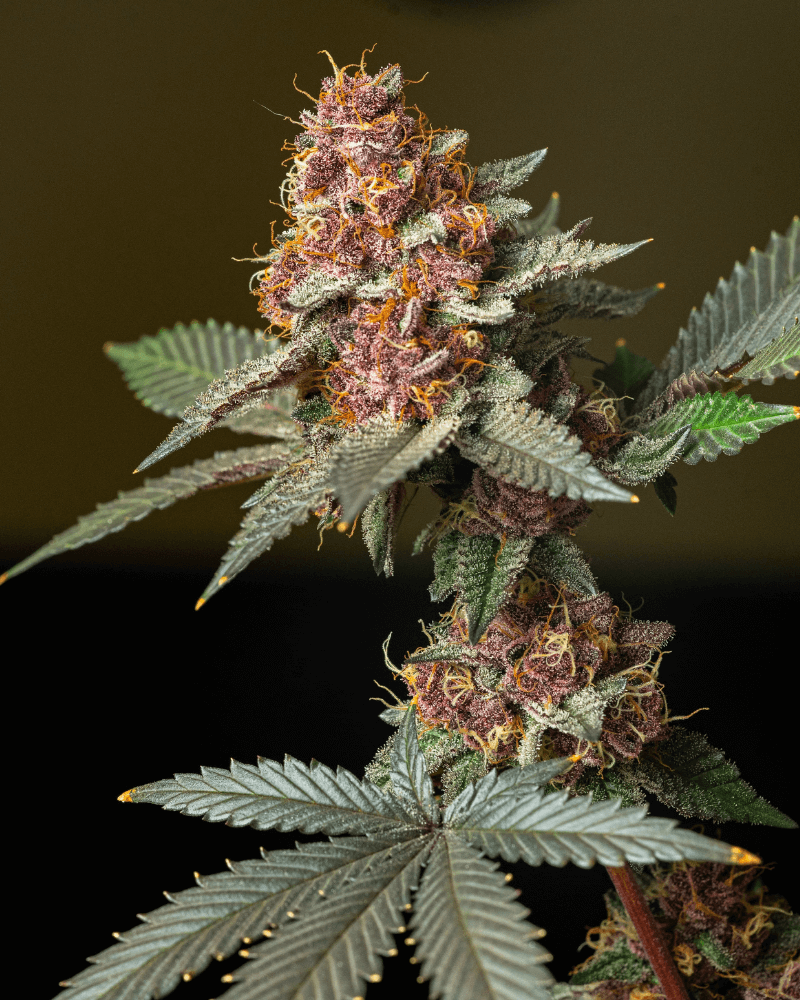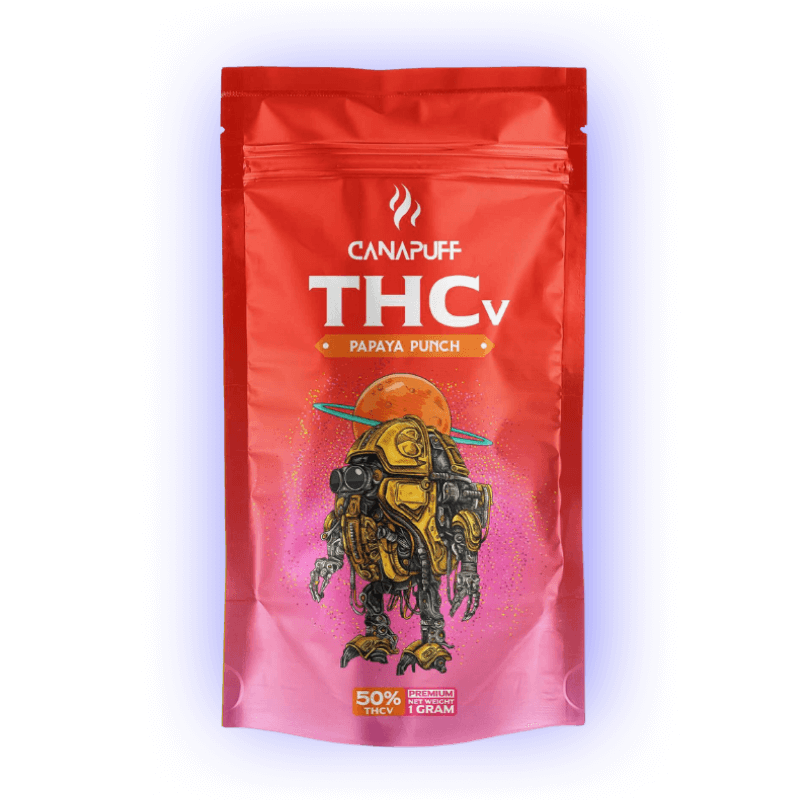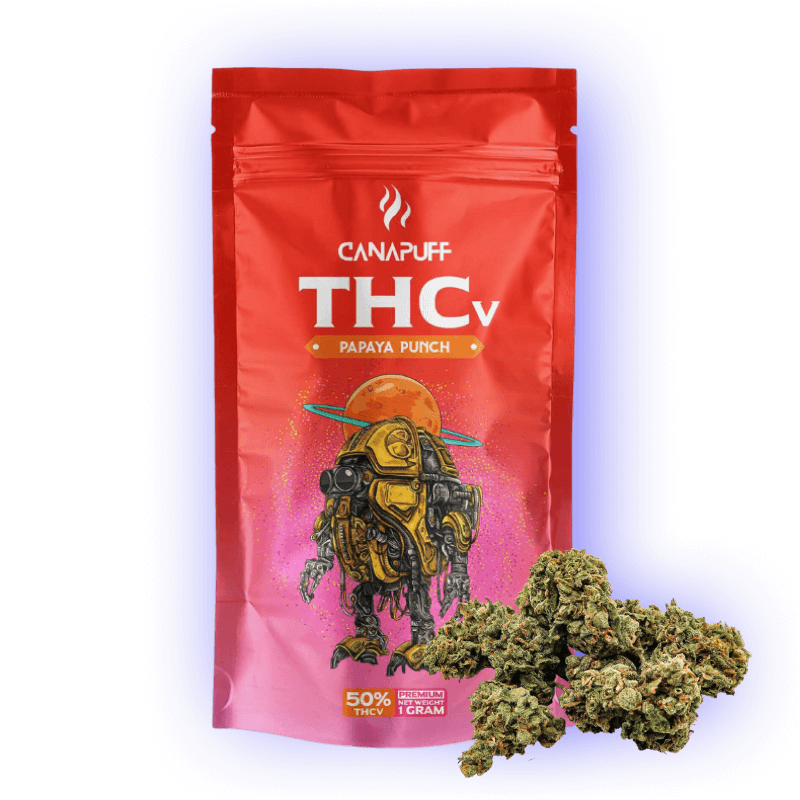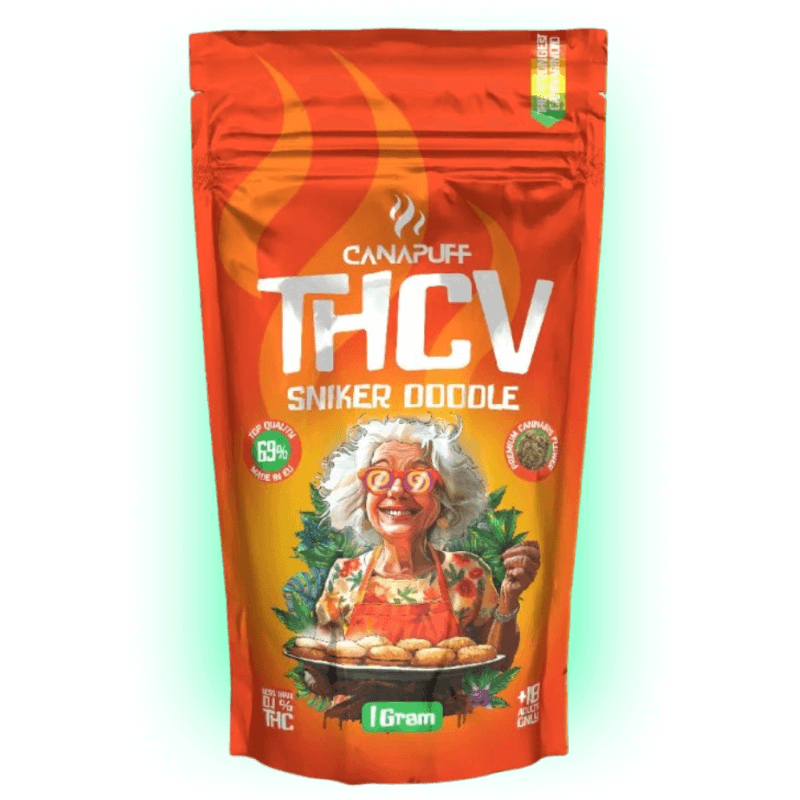Everything you need to know about THCV
THCV is one of over a hundred cannabinoids produced by the cannabis plant, and researchers are currently studying the molecule for potential therapeutic effects. Research is still in its infancy, but this small cannabinoid has already revealed some fascinating properties. Read on to find out more.
What is THCv?
THCV, or tetrahydrocannabivarin, is a close relative of THC, but due to slight differences in its chemical structure, it has a unique effect on the body. Researchers are particularly interested in this influence because THCV, along with other cannabinoids, could affect the endocannabinoid system. The only problem is that it is much more difficult to isolate THCV in larger quantities than other cannabinoids, making extensive studies difficult.
To understand why isolating THCV is so challenging, we need to take a look at the beginnings of the cannabinoid family tree.
All cannabinoids are derived from the precursor molecule CBGA and gradually become over a hundred different compounds through a series of chemical reactions. Of course, these cannabinoids do not appear at the same time or in the same quantities - therein lies the difficulty in isolating THCV.

THCV is produced in the early developmental stages of the hemp plant. A derivative of CBGA (CBGVA) reacts with enzymes and forms CBDVA, CBCVA and THCVA. After decarboxylation, THCVA loses a carboxyl group and becomes THCV. Although this process is similar to how we obtain important compounds such as CBD and THC, there is much less THCVA available to be converted into THCV.
What is the difference between THC and THCV?
THC and THCV are very similar on a molecular level, with only a slight difference in their carbon side chain (THC has a 3-carbon side chain, THCV has a 5-carbon side chain). However, this small difference in chemical structure leads to different effects of THCV on the body.
It is important to note that both cannabinoids can produce a high-like feeling. While THC has a strong and profound effect, THCV produces a more stimulating and less intoxicating feeling. However, unlike THC, the effects of THCV are dose-dependent, meaning that you need to consume much more THCV to feel its euphoric effects.

What is the difference between THCv and THCp?
THCv and THCP, both variants of THC, differ mainly in their chemical structure and effect. THCv, short for tetrahydrocannabivarin, has a stimulating effect on energy levels and can reduce appetite. It is often associated with clear, energetic effects. THCP, or tetrahydrocannabiphorol, is a newly discovered compound that has a stronger affinity for cannabinoid receptors. This could give THCP a more potent psychoactive effect than THCv and even than THC itself. Research on both cannabinoids is still ongoing, but their unique properties offer promising approaches for medical and therapeutic applications.

Worth knowing: THCv and epilepsy
Studies on THCv in relation to epilepsy are still at the preclinical stage. Nevertheless, research has revealed interesting potential mechanisms of action. One particularly notable study from 2021 suggests that the effect of THCv is not only dependent on dosage, but also activates the endocannabinoid system (ECS) in specific regional areas.
This discovery is of significant importance and could lead to targeted applications of specific cannabinoid formulas.
Also, another significant reason why researchers want to explore the potential of compounds such as THCv, CBDv and CBG is - their "favorable side effect profiles".
Our bestsellers
As we still have limited knowledge of the effects of THCV in humans, the range of potential side effects of this cannabinoid is also unclear. However, the activation of CB1 receptors by THCv at very high doses could include some of the potential side effects of THC, such as anxiety, dry mouth, red eyes, memory loss, increased heart rate and slowed reaction time.
FAQs
Having briefly discussed the mode of action of THCV, it makes sense to delve deeper into how this substance works. As mentioned earlier, the effect of THCV on the endocannabinoid system (ECS) appears to be dose-dependent, meaning that a low dose has a different effect than a high dose.
Both THCV and THC are agonists of the CB1 receptors and increase their activity. However, at low doses, THCV can block CB1 receptors and inhibit the psychotropic effects of THC. In contrast, high doses appear to activate these receptors and produce a psychotropic effect[2].
THCV also appears to affect the CB2 receptors of the endocannabinoid system, which are associated with inflammation and other immune system functions.
Although common workplace drug tests do not usually look specifically for THCV, the close relationship of this substance to THC can lead to a positive test result. As specific THCV products are limited in availability, it is very likely that THCV ingestion occurs through the use of THC-rich cannabis, which can still have legal consequences in many regions of Europe and the US.
If the use of THC-containing products is not legally permitted in your area, it is advisable to avoid such products while scientists continue to work on advanced detection methods for THCV and other cannabinoids.
It is important to emphasize that the safety of THCV is still under evaluation. Although it is generally recognized that the effects of this cannabinoid are dose-dependent, there is still some risk of psychotropic effects, albeit to a lesser extent compared to its relative, THC. Despite its milder intoxicating effects, THCV appears to have a favorable safety profile. However, we should emphasize that further extensive studies in humans are needed.
In terms of safety, it is also important to consider the legal situation. Regarding the legal situation, THCV is in a kind of gray area. It is neither generally recognized nor explicitly banned, but due to its association with "marijuana extract" it is generally illegal.
THCV still hides many secrets, as research into cannabis is still in its infancy. Clearer insights into the effects of THCV will only be gained through clinical trials on humans. For now, we must rely on animal and cellular research for clues to the potential of this molecule.

















